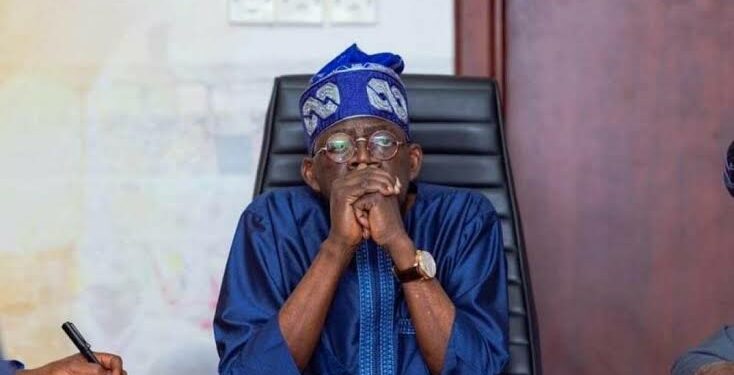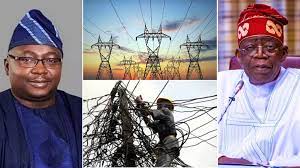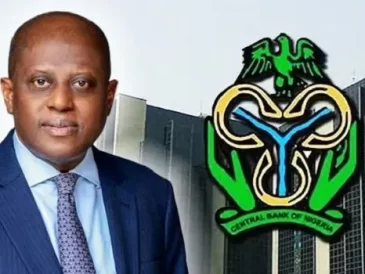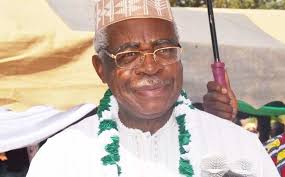//Disfranchised Nigerians continue to rebuke the Tinubu administration for its lackluster governance performance. That is as it should be. On balance, the APC administration also…//
*Pix above: PBAT
BY OSELOKA H. OBAZE
Disfranchised Nigerians continue to rebuke the Tinubu administration for its lackluster governance performance. That is as it should be. On balance, the APC administration also has its defenders and apologists. That too, is as it should be. Both are essential parts of any democracy. Democracies tend to mimic a broad spectrum; there are left and right wing extremists and centrists aka moderates. There are also the rulers and the opposition. Ultimately, the sweep and sway of the pendulum can be wide.
The All Progressives Congress’s (APC) weak electoral mandate still dominates the discourse in Nigeria’s political space. As if that was not enough, the ruling APC has again gone rogue by being immersed in the news for the wrong reason; budget padding.
Enchanted by the Beautiful City near Cambodia Border – Nếm TV00:03 / 02:4810 Sec
In early 2016, President Muhammadu Buhari told Nigerians that in the many years he served as governor, minister and headed the Petroleum Trust Fund, he had never heard the phrase “budget padding.” Two years later in 2018, President Buhari accused the National Assembly of padding Promissory Notes Programme and debts to be reimbursed to states by the federal government by N890.5 million.
All these happened on APC’s watch. Budget padding, now seemingly habitual for APC, has resurfaced again. Whereas APC is answerable for the latest unsavory development, Nigeria’s political opposition must share part of Senate, Reps relocate to main chambers April
It is commonly accepted that the strength of political party opposition affects government. Since democracy is about rationalising divergent and convergent choices, it means that those constituting the opposing minority in a democracy, still have a critical role to play. For this singular reason, political opposition in a democracy, no matter its lesser numerical strength, retains the capacity to influence legislative processes. Regrettably, a SWOT analysis of Nigeria’s present political opposition leaves a lot to be desired.
The All Progressives Congress controls the executive and legislative branches of government for the past eight years. Yet, of the 18 recognised political parties in Nigeria, six have elected representatives within the federal legislature and in state government houses and state assemblies. The main political opposition cluster, which consists of the PDP, LP, NNPP, SDP, APGA and ADC, all have representation in the National Assembly, and therefore, represent the collective voice, no matter how infinitesimal.
The National Assembly has a total of 469 elected members; 109 in the Senate and 360 in the Federal House. In the Senate, the numerical difference between the ruling APC and the collective minority, is just nine votes; APC’s 59 to minorities’ 50. The House of Representatives breakdown is as follows: All Progressives Congress: 176 seats; the opposition has cumulatively 182 seats, which outstrips the ruling APC by six votes.
The foregoing numbers notwithstanding, since the inception of the Tinubu administration, the political opposition has been ominously silent and seemingly inactive. PDP, the former ruling party, as opposition, seems to have lost its voice. Nigerians still recall the diligence, vehemence and robustness with which Chief Olisa Metuh of PDP singularly dogged the Buhari administration.
Regardless of party affiliation, Nigerian legislators are elected to pass legislation to benefit Nigerian citizens. Pursuant to the 1999 Constitution, the legislators are, inter alia, vested with the statutory powers to make laws for the peace, order and good governance of the federation, as well as regulatory powers, investigatory powers, financial powers, and confirmation and impeachment powers. Accordingly, if the legislature has its wits about it, when it speaks, the Executive and Judiciary branches ought to pay very keen attention. The same is true of the opposition cluster within the government.
As it is, evidence abound that the Nigerian opposition is failing in its responsibility to provide checks and balances and adequate oversight, either because they seem not to understand their statutory remit; or perhaps, because Nigerians hardly hold them accountable. It could also be attributed to most Nigerians being far too preoccupied with existential concerns to worry about realpolitik.
Besides, most Nigerians seem to have lost confidence in the political party system, given the transactional nature of political alignments. Contextually, Nigeria’s incumbent political opposition in the legislature for whatever reasons, abet APC’s grim governance.
Three discernible factors, possibly more, contribute to the ineffectiveness of the political opposition. First, is the absence of binding or contrasting political ideologies. Second, is absence of punitive and agonising sanctions for cross-carpeting and antiparty activities? Third is the transactional nature of Nigerian politics. Although the 2022 Electoral Act now makes it more difficult to defect, the political opposition is yet to leverage on that advantage.
Presently, the only strident opposition voices in the national political sphere, seems to be that of Peter Obi, the Obidients, some forthright politically conscious individuals and some not-yet-co-opted CSOs. This is evidenced by the fact that social media platforms are awash with complaints from Labourites and Obidients that elected Labour Party legislators seem content to enjoy the honorifics of their positions, without doing the heavy lifting that comes with their offices. The same sentiments apply to PDP legislators.
Nigeria’s present opposition cluster seems to gloss over their collective strength and role. Such disposition weakens our democracy. What is missing is the bi-partisan caucus expected of the opposition collective in the national interest. Ignored also, is the fact that political opposition anywhere that understands its collective bargaining power, will also grasp its strength and resultant ability to shape policies as well as modify the effects of autocratic state control and state capture.
Nigeria is worse off if the prevailing resignation is based primarily on enlightened self-interest. Given the state of the nation, for the opposition to pally and dally around with the APC leadership may not be politically career-enhancing.
Because the PDP, LP and NNPP have been immersed in all manners of visceral leadership crisis, the reticence of the leaders of the main national parties might be understandable; but certainly, not those of their elected legislators. At a time when there is increased deprivation and hardship across the nation, Nigerians are neither witnessing the robustness nor feeling the pulse of the political opposition. Rather, opposition apathy is contributing to leadership inertia, indolence as well as brinkmanship. As empirical studies and experience instruct, weak political opposition only accelerates democratic erosion and democratic backsliding.
Roadblocks to a strong democracy in Nigeria exist in all tiers of government. But Nigeria is especially confronted by a dual-tracked Orwellian challenge: danger of apathy and danger of silence. Whereas APC legislators can conveniently wish to transform the federal legislature to a rubber stamp institution; must opposition legislators follow blindly, without questioning their decisions and without a modicum of independent critical thinking and assertiveness? A clear divide exists between building consensus, compromise and capitulation.
Clearly, they seem to have abdicated the vital role of an alternative government and indeed, the role of a government in waiting. The prevailing optics relative to the latter is dreadful.
Right now, legislative opposition members hardly reecho or buttress political positions enunciated by Peter Obi of the Labour Party, Atiku Abubakar of PDP or Rabiu Kwankwaso of the NNPP. Opposition legislators have never aligned publicly with the Nigeria Labour Congress (NLC). They hardly appear on national television to advance opposition legislative agenda or rebut the excesses of the ruling APC government. Rather, members of the Nigeria opposition appear to spend more time and efforts feathering their nests than confronting the APC government. It is thus increasingly hard to convince various federal constituents that their elected opposition members have not sold out to the ruling party. Indeed, words can’t describe the dissoluteness of most of our opposition legislators.
The proactive role of the political opposition in Nigeria is now more imperative than ever, since the ruling APC government is clearly struggling with governance and nation building. With entrenched poverty, hunger and insecurity, the voice of the opposition, which should be a salve for the national population, is remarkably muted. That ought to be very troubling for all concerned.
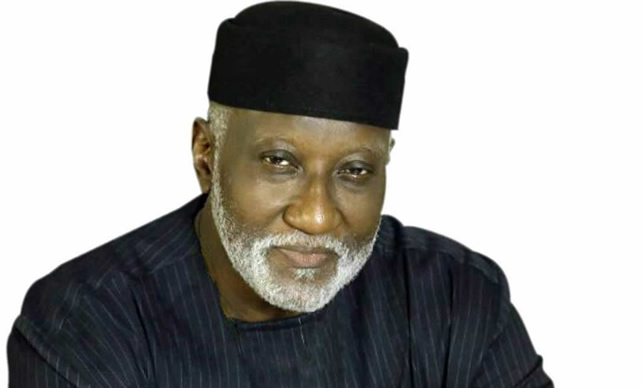
Obaze is MD/CEO, Selonnes Consult, a policy, governance and management consulting firm in Awka

